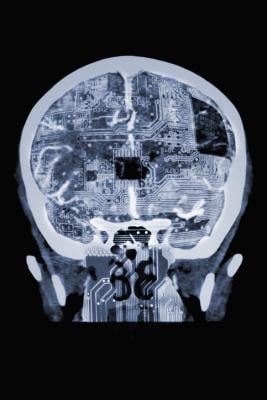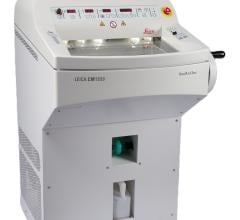
Getty Images
January 22, 2024 — The Radiological Society of North America (RSNA), with the American College of Radiology (ACR) and three other radiology societies from around the world have issued a joint statement on the development and use of artificial intelligence (AI) tools in radiology. The statement was published in RSNA’s journal, Radiology: Artificial Intelligence.
“AI tools are an essential part of radiology’s future,” said RSNA President Curtis P. Langlotz, M.D., Ph.D. “RSNA is committed to supporting the responsible use of AI in medical imaging through all three pillars of its mission: education, research, and technological innovation.”
“Developing, Purchasing, Implementing and Monitoring AI Tools in Radiology: Practical Considerations. A Multi-Society Statement from the ACR, CAR, ESR, RA, NZCR and RSNA" was drafted by representatives of RSNA, the American College of Radiology, the Canadian Association of Radiologists, the European Society of Radiology and the Royal Australian and New Zealand College of Radiologists.
“This statement from RSNA and other leading radiology societies provides important guidance for our profession,” said Charles E. Kahn Jr., M.D., M.S., editor of Radiology: Artificial Intelligence. “It identifies key concerns that must be addressed to develop, implement, and monitor AI systems for clinical practice.” A summary of the statement, as issued by RSNA on Jan. 22, 2024, follows:
AI carries the potential for unprecedented disruption in radiology with the possibility of both positive and negative consequences. The integration of AI in radiology could revolutionize healthcare practices by advancing diagnosis, quantification and management of multiple medical conditions. However, with the expanding availability and capabilities of AI tools in radiology comes an increasing need to critically evaluate claims for AI’s utility and to differentiate safe product offerings from potentially harmful or fundamentally unhelpful ones.
The multi‑society paper defines the potential practical problems and ethical issues surrounding the incorporation of AI into radiology practice. In addition to delineating the main points of concern that developers, regulators, and purchasers of AI tools should consider prior to their introduction into clinical practice, the statement also suggests methods to monitor the tools for stability and safety in clinical use, and to assess their suitability for possible autonomous function.
“This statement will serve as both a guide for practicing radiologists on how to safely and effectively implement and use the AI that’s available today, and a roadmap for developers and regulators on how to approach delivering improved AI for tomorrow,” said statement co-author John Mongan, M.D., Ph.D., radiologist and vice chair of informatics in the Department of Radiology and Biomedical Imaging at the University of California, San Francisco, and chair of the RSNA Artificial Intelligence Committee.
The authors address a number of key issues surrounding the integration of AI into medical imaging workflow. They note that AI incorporation into clinical practice demands increased monitoring of its utility and safety. They also stress that cooperation between developers, clinicians and regulators is critical, to allow all involved to address ethical issues and monitor AI performance.
AI can fulfill its promise to advance patient well‑being if all steps from development to integration in health care are rigorously evaluated. This multi-society statement provides guidance for developers, purchasers and users of AI in radiology to ensure that the practical issues that surround all stages of AI from conception to long-term integration in healthcare are clear, understood and addressed, and that patient and societal safety and well-being are the primary drivers of all decisions.
This article has been published simultaneously in Insights into Imaging, Journal of Medical Imaging and Radiation Oncology, Canadian Association of Radiologists Journal and the Journal of the American College of Radiology. Authors include: Adrian P. Brady, Bibb Allen, Jaron Chong, Elmar Kotter, Nina Kottler, John Mongan, Lauren Oakden‑Rayner, Daniel Pinto dos Santos, An Tang, Christoph Wald and John Slavotinek.
For more information: www.rsna.org


 February 17, 2026
February 17, 2026 









